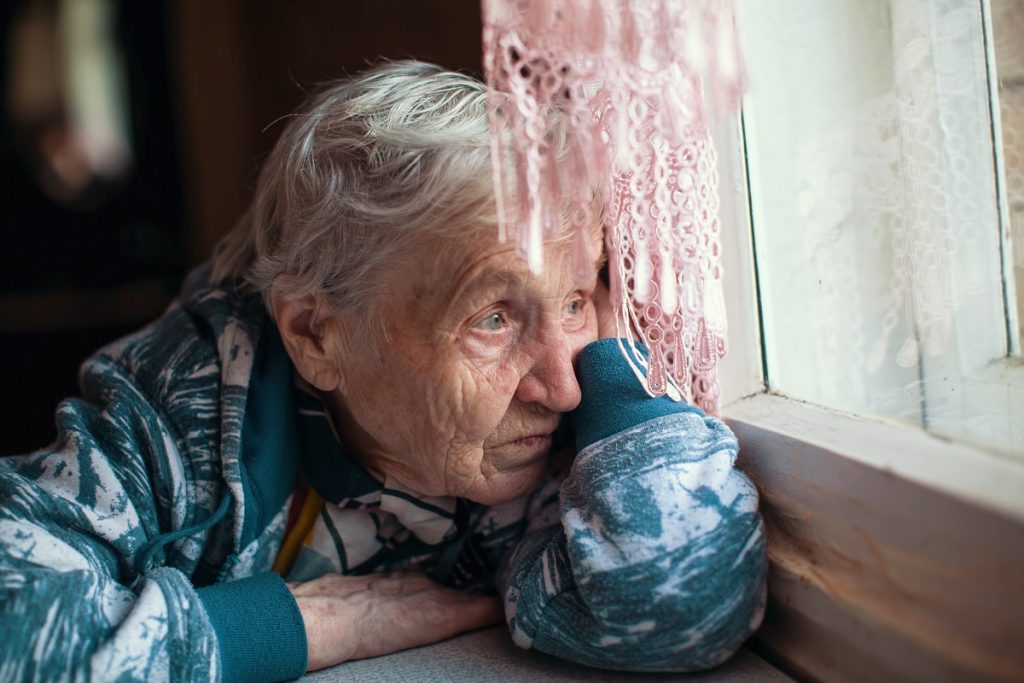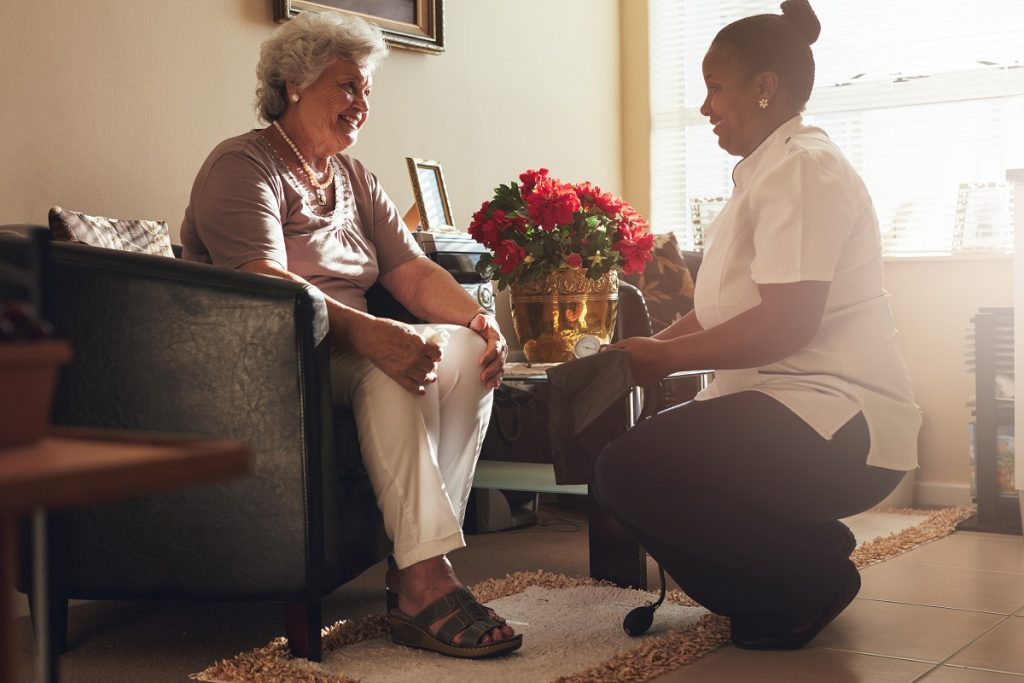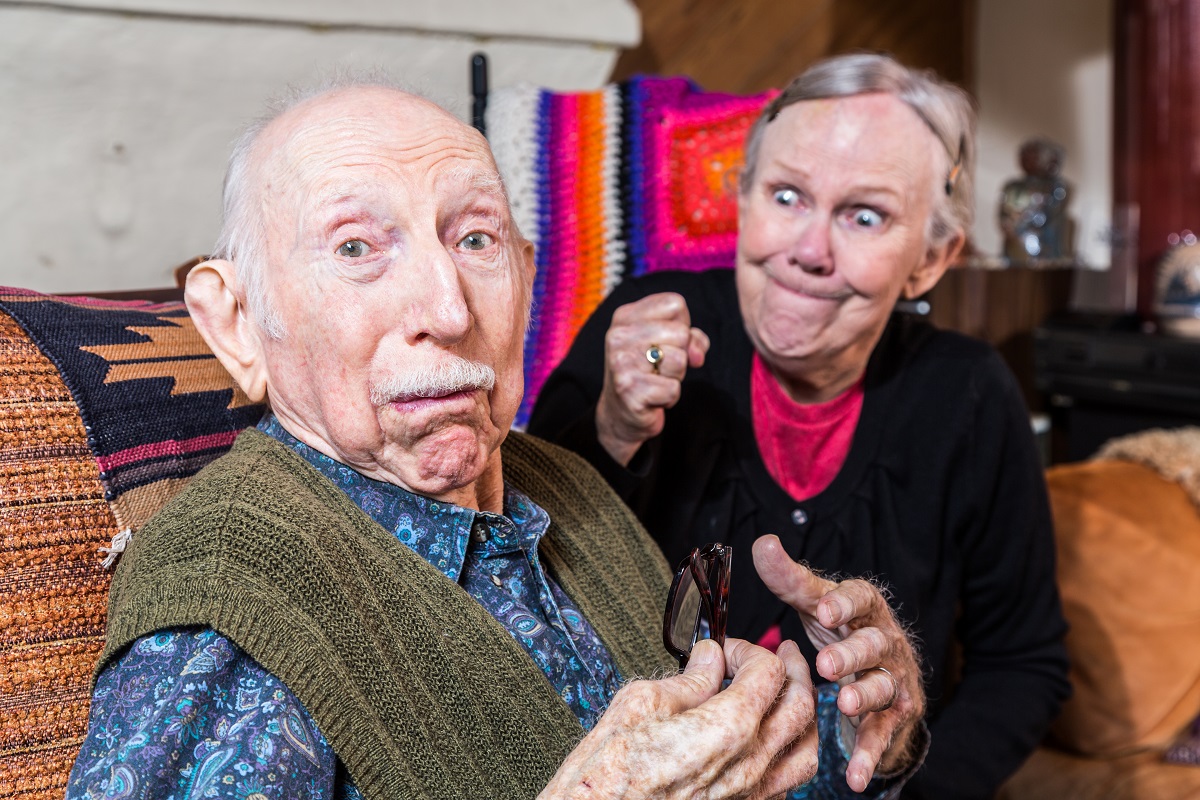Both physical and cognitive changes in old age can change an elderly person’s outlook and way of dealing with others. The situation they find themselves in make them cranky, negative, and moody and hard for family and caregivers to deal with.
Dealing with aging parents or another older adult in your life can be complicated in many ways. One very real issue that many find themselves trying to navigate is when their loved one suddenly starts to exhibit behavioral changes such as being angry much of the time. These changes can happen for a variety of reasons.
What Is The Most Common Reason Old People Get Mean?
One of the most common reasons why our elderly parents or other family members get angry and negative is because they feel so much of their life is changing beyond their control. This can be due to health problems, memory loss, death of loved ones, loneliness, depression, or a myriad of reasons.

Older people can be more prone to emotional outbursts and personality changes as they age, and there can be many things that contribute to that.
What Conditions Contribute To Senior Attitudes?
- Declining Health: Experiencing medical conditions that have led to declining health can cause elderly people to exhibit out-of-character behavior.
- Grief: Losing important people in your life can cause mood swings. Remember that your elderly parents are losing loved ones
- Illness: People are often surprised to find that there is a myriad of health issues that can cause personality changes. For example, someone with a urinary tract infection (UTI) can act differently.
- Medications: Some medications can cause behavioral changes. If you think this might be possible, talk to your healthcare provider.
- Memory Lapses: One of the warning signs of possible dementia or Alzheimer’s disease is when your loved one experiences lapses in memory. Cognitive decline can lead to outbursts of anger.
- Mental Health Issues: Depression, mental illness, and even anxiety can lead to anger.
- Poor Sleep: Getting older can result in not getting quality rest, which can result in anger. Sleep is an essential component of overall well-being.
Why Are Seniors Often Depressed?
There are many things that can lead to seniors feeling depressed. Losing the ability to enjoy independent living is just one example. Moving from a home where you have lived your whole life to assisted living, living with adult children, or moving into a nursing home can be hard.
Accepting the natural aging process is also challenging for many people. Aging often leads senior citizens to feel sad as they contemplate what might be to come. Difficulties navigating around the home, inability to perform the normal tasks of daily life unassisted, and losing people you love are all common hardships of the elderly.

As a person’s quality of life declines, that can lead to crippling depression. As a caregiver or care manager, this could lead you to find yourself seeking professional help for the senior citizen with whom you are working.
How Do You Deal With Seniors Who Are Mean?
Finding out how to navigate dealing with senior care for someone who is mean can be challenging.
- Accept help: If you have a friend or family member offering you assistance dealing with the person, accept it.
- Assess the situation: This means really digging into what has changed and the potential reasons for why. If your loved one (or client, if you are a professional caregiver) has recently become more volatile, ask yourself if anything has changed.
- Find joy: Finding joy can mean for yourself as a caregiver or for the person for whom you are caring. As life seems to spiral out of control, making time for fun activities can flip the switch to a better attitude.
- Give yourself a break: Especially if you are a live-in caretaker, you need to give yourself some much-needed and well-deserved breaks. Too frequently those who are caring for someone else forget to take care of themselves, especially family caregivers.
- Question: Although this might feel uncomfortable, ask the person if there is a reason why they are more irritable than normal. Perhaps they are experiencing chronic pain or discomfort that has not been mentioned to you.
- Support groups: There are groups out there for almost everything, including people who care for elderly parents or grandparents.
- Talk to the doctor: Since there are underlying physical and mental health problems that can cause anger and aggression, speaking to their physician is important.
Handling Seniors Abusive To Caregivers
Long-term care, either in-home care or care services within a facility, can prove challenging. This is especially true if the person starts to get angry or aggressive. Everything discussed encourages caregivers to try to find the underlying reason for the anger. However, sometimes you simply can’t change things, and the person just continues to be mean.

Having multiple caregivers so that no single person gets too taxed with the task is helpful. Pick your battles in order to avoid arguments. While there are some things that you have to draw a hard line on, there are others where you can be flexible.
Stay calm when things get crazy and don’t be afraid to just walk away if you need to. Self-care is a very important thing.
Can You Change Senior’s Attitudes So They Are More Positive And Pleasant
Sometimes you can change the senior’s attitude. Don’t underestimate the value of an antidepressant or antianxiety med, and don’t be afraid to ask your loved one’s doctor about this.
Providing consistency and routine is another way to help keep a senior citizen’s mind at ease. Knowing what to expect each day is helpful, especially to adults who are struggling with memory loss.

Keeping the person physically comfortable can also go a long way, whether this is achieved through climate control, pain medication, lap blankets, special pillows, or something else.
Lastly, sometimes the older person is just scared and lonely. Spending extra time with them or bringing in friends or recreational activities could help.

